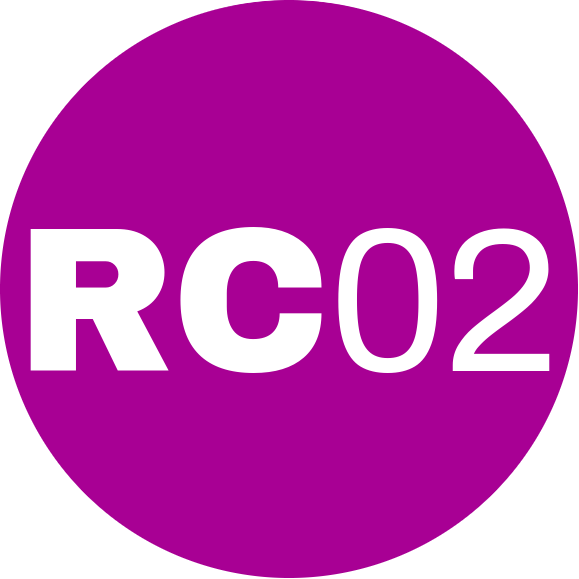The RC02 conference on ‘The International Political Economy of Labor Migration: Current Developments, Future Prospects’ is scheduled to take place in Duisburg (Germany) between July 18–20, 2024. The study of migration, in particular labor migration, has come to occupy a central position in the investigation of the interaction between the economy and society and this conference aims to bring together scholars working on this theme from different parts of the world to further our understanding of the phenomena. The funding and logistics of the conference are generously supported by the World Society Foundation, Critical Sociology, the University of Maryland, Wayne State University and the University of Duisburg-Essen. The city of Duisburg, which is located at the heart of the historic industrial economy of Germany, represents a key hub of migration in the old industrial district and lies at the crossroads of new trade routes, making the location meaningful for the theme of the conference.
The organizers of the conference invited papers discussing current debates and new frameworks for analyzing the political economy of labor migration and addressing transformations of labor migration. Specific sub-themes included a) commodification, reproduction, and control of migrant labor, including how populations are recruited into migration, the operation of sending state-sponsored circular migration, b) the regulation of competition in migrant labor markets, c) the subjection of migrant workers to modes of control and resistance inside, but also outside the labor process (e.g. through debt, or dormitory regimes), d) conceptualization of ‘unfree’ labor/subcontracted labor/agency labor, e) transformation and transnationalization of reproductive labor, f) the role of social movements, trade-unions, and NGO cross-border advocacy, g) state, capital, and regulatory strategies for decent work, h) intersections among gender, race, and class in relation to migration and i) skills mobilities (e.g., “trainee schemes,” students in their role as workers). The program committee comprising of Heidi Gottfried (Wayne State University, USA), Karen Shire (Universität Duisburg-Essen, Germany), Nicola Yeates (Open University, UK), Julie Greene (University of Maryland, USA), Nadya Araujo Guimarães (Universidade de São Paulo, Brazil), Ngai Pun (Lingnan University, Hong Kong), Jenny Chan (Hong Kong Polytechnic University, Hong Kong), Eileen Boris (University of California, Santa Barbara, USA) and Hans-Peter Meier-Dallach (World Society Foundation, Switzerland) competitively selected seventy-six abstracts for presentation from Latin America, Middle East, South Asia, US, Europe and Africa. These presentations combine theoretical and new empirical findings based on comparative research, cross-regional perspectives, as well as in-depth single-case studies.
Apart from the twenty-four panels comprising of three-four presentations each, the conference also has three significant plenary sessions. Plenary I focuses on the theme of ‘Migration Politics’ and has two keynote presentations by Eleonore Kofman (Middlesex University, United Kingdom) on “Empire Revived?: The political economy of post-Brexit migration policies in the UK”, and Rina Agarwala (Johns Hopkins University, United States of America) on “The Migration-Development Regime: How Class Shapes Indian Emigration”. Plenary II is a special roundtable of activists organized and chaired by migration scholar and activist Polina Mihaylova Manolova (University of Duisburg-Essen). The invited speakers of the roundtable include Angie Garcia (Waling-Waling, UK), Khadija Najlaoui (Unite the Union, UK), as well as Szabolcs Sepsi (Fair Mobility, Germany), who will share their thoughts and reflections on the question of ‘Migration, Dissent and Dialogue’. The last plenary is titled ‘Labor Migration and the Making of a US Empire’ and it offers a unique historical perspective on the conference theme. It includes keynotes by Julie Greene (University of Maryland, United States of America) on "The Labor Migration Problem in the US Empire, 1890-1940", Justin F. Jackson (Bard College at Simon's Rock, United States of America) on "War, Occupation, and their Legacies in the Rise and Fall of America's Empire of Chinese Exclusion", and Madeline Y Hsu (UMD, United States of America) on "Legacies of Empire in Differentiated Categories of Laborers". Other special sessions include two ‘Book Salons’ where authors of select books meet and discuss their book with critics. The first book salon will comprise of a presentation by Ewa Palenga-Möllenbeck (Goethe University Frankfurt) on the book “Home Care for Sale, The Transnational Brokering of Senior Care in Europe” (Sage; 2024) and a critical discussion by Sabrina Marchetti (Ca' Foscari University), Attila Melegh (Corvinus University of Budapest), and Isabel Shutes (London School of Economics). The second book salon will include a presentation by Karen Shire, Sylvia Walby (Royal Holloway, University of London) on their book Trafficking Chains: Modern Slavery in Society (Bristol University Press; 2024) and a critical discussion by Eileen C. Boris.
Over the past few decades, the expansion of global (re)production networks, the partial liberalization of cross-border mobility, the rise of new sending states promoting migrant exports and the burgeoning of a migration industry with recruitment networks at the lead, presage fundamental changes in world society. This global summit, focused on the political economy of migration, answers the call to open the “black box” of labor migration. It aims to better understand the mechanisms that make mobility possible, identify the factors driving migration, and examine the experiences of migrants at their destinations. The conference highlights contributions in three cross-cutting themes that explore the relationship between states, markets, and migrants: Governance and the Making of Transnational Labor Mobilities and Labor Regimes; Transformation and Transnationalization of Social Reproductive Labor (e.g., care work, health, education); and Regulation and Resistance. These subthemes offer fruitful avenues of inquiry, drawing on a spectrum of alternative perspectives, and will significantly contribute to knowledge formation by deepening our understanding of contemporary migration dynamics and informing policy and practice in this critical field. The planned excursions to Landschaftspark, an urban oasis of remodelled industrial buildings from the past, and Duisport, the largest inland harbour in the world, will offer the conference participants a sensory journey, allowing them to visualize the industrial era and its history of migration.

